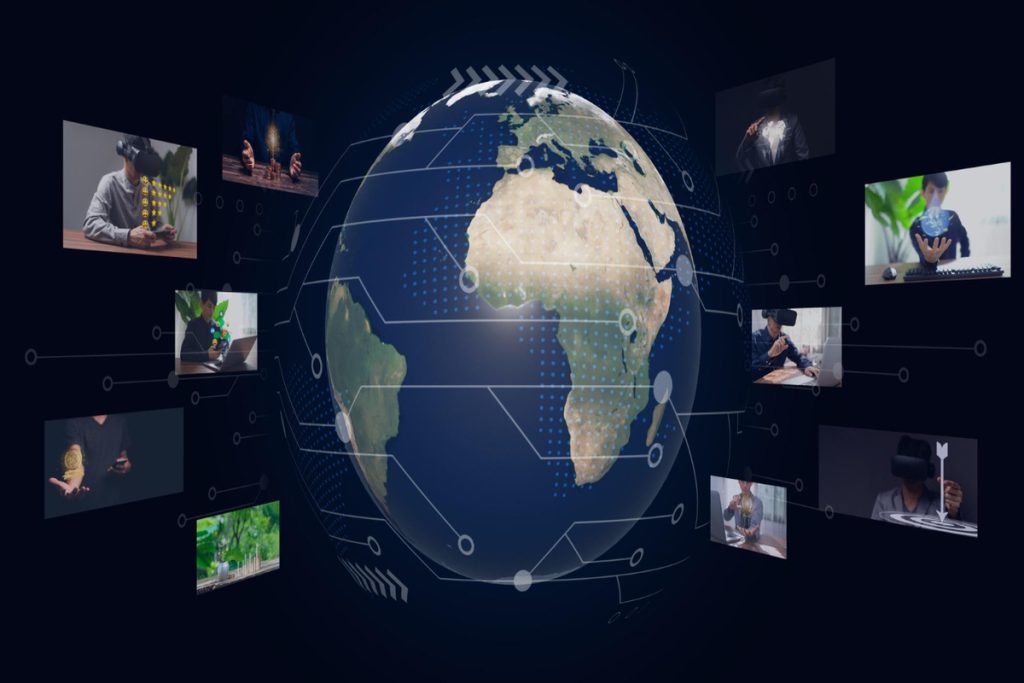Deepfake porn in Hong Kong has ignited a significant controversy, particularly following alarming accusations involving a male law student at the University of Hong Kong. This case, which involves the creation of AI-generated images depicting female students and faculty members without their consent, has raised serious concerns about deepfake technology and nonconsensual pornography. As awareness spreads, many are questioning the existing privacy laws in Hong Kong, which currently do not adequately address the generation of such invasive content. While the legal framework aims to protect individuals from the publication of intimate images without consent, the production of deepfake porn remains largely unregulated. The situation has garnered widespread attention, highlighting both the risks posed by advances in AI and the urgent need for reform in privacy legislation.
The emergence of manipulated adult content, commonly referenced as synthetic pornography, has become a pressing issue within the society of Hong Kong. Recent events surrounding a law student accused of employing cutting-edge artificial intelligence to fabricate nonconsensual explicit images of female peers have shed light on the darker applications of digital technology. This disturbing trend raises important discussions around the ethical implications of AI-generated media and the urgency for better privacy protections in educational environments. Students have voiced their grievances, feeling that authorities have not taken sufficient steps to safeguard their rights against this invasive practice. As the conversation expands to encompass the need for comprehensive legal measures, the potential harm caused by such digital offenses cannot be overlooked.
Understanding Deepfake Technology and Its Implications
Deepfake technology leverages artificial intelligence to create hyper-realistic fake videos and images of individuals, often without their consent. This technology can manipulate existing media or generate entirely new content, making it particularly concerning when applied in the context of pornography. The recent case involving students at the University of Hong Kong highlights the darker applications of this innovation, as a male law student allegedly used it to create explicit images of his peers. The ease with which these AI-generated images can be produced poses significant ethical questions and raises concerns about privacy and consent.
As technological advancements continue to evolve, the line between entertainment and exploitation becomes increasingly blurred. Deepfake porn, a form of nonconsensual pornography, unjustly invades the privacy of individuals, showcasing them in compromising positions against their will. In jurisdictions like Hong Kong, the absence of robust legal frameworks to address the generation of such content leaves victims feeling vulnerable, as they seek justice and accountability against perpetrators who misuse AI technology.
The Rise of Nonconsensual Pornography in Hong Kong
The troubling trend of nonconsensual pornography is becoming alarmingly prevalent in many parts of the world, including Hong Kong. As evidenced by the case at the University of Hong Kong, the misuse of deepfake technology to create explicit images can have devastating effects on the victims involved. The recent investigation led by the Office of the Privacy Commissioner for Personal Data underlines the pressing need for stricter regulations governing the creation and distribution of such content, particularly in a city trying to uphold privacy rights.
Victims of nonconsensual pornography often face not only social stigma but also psychological distress from the violation of their privacy. In this Hong Kong incident, students felt the university took insufficient action to guarantee their safety, exemplifying a systemic failure to protect individuals from harm. This case raises broader questions about how effectively privacy laws in Hong Kong can combat the rise of digital abuse and the responsibilities of educational institutions to safeguard their students.
Privacy Laws in Hong Kong: A Need for Reform
Hong Kong’s privacy laws currently lack specific measures addressing the intricacies of deepfake technology and its implications for nonconsensual pornography. While existing regulations prohibit the publication of intimate images without consent, they do not address the creation of such content. This regulatory gap leaves victims vulnerable and highlights the urgency for legal reforms that encompass all aspects of privacy violations propelled by AI and deepfake technology.
As discussions surrounding privacy laws intensify amidst increasing public outcry, lawmakers face mounting pressure to accelerate the implementation of comprehensive statutes. These laws should not only encompass punitive measures against perpetrators but also establish preventive frameworks to educate individuals about the risks and ethical implications of deepfake technology. Ultimately, effective privacy laws in Hong Kong will require collaboration between governmental bodies, educational institutions like the University of Hong Kong, and advocacy groups to ensure that citizens are adequately protected.
The Role of Universities in Protecting Students Against Digital Abuse
Universities play a pivotal role in safeguarding their students from emerging forms of digital abuse, especially concerning deepfake technology. The University of Hong Kong’s response to the allegations of deepfake porn demonstrates the challenges institutions face in balancing student privacy, accountability, and education. By failing to ensure the safety of their students amidst ongoing threats, universities risk fostering environments of fear and mistrust.
In light of the incident involving AI-generated images, it’s crucial for universities to establish clear protocols that address the creation and dissemination of nonconsensual pornographic content. This includes providing counseling services for victims, implementing strict disciplinary actions against violators, and promoting awareness campaigns about the ethical implications of misleading digital media. Such proactive measures can help mitigate risks and cultivate a safe educational environment where students feel protected and valued.
Public Outcry and Call for Action in the Wake of Scandals
The revelation of deepfake porn incidents involving students has sparked widespread outrage in Hong Kong, prompting calls for stronger action from both the public and government officials. Many students have taken to social media to voice their frustrations, illustrating a community that demands accountability and reform. This wave of activism signifies a growing consensus that current measures are inadequate to protect individuals from the harms of digital exploitation.
As public sentiment escalates, city officials, including Chief Executive John Lee, have begun to respond by emphasizing the need for universities to take student misconduct seriously. The continued pressure from the student community serves as a reminder to educational institutions that safeguarding against digital abuse is not just a compliance matter but a moral imperative. Heightened awareness around incidents of deepfake porn can pave the way for more comprehensive protections in privacy laws and institutional policies.
AI-Generated Images: Merging Ethics and Technology
The rise of AI-generated images is challenging existing ethical standards in media, fashion, and popular culture. As technology advances, it becomes increasingly accessible for individuals to manipulate images, often without considering the consequences. This raises fundamental ethical questions about consent and the portrayal of individuals, especially when discussing sensitive subjects such as pornography. The development of deepfake technology presents a double-edged sword, offering both innovative applications and serious ethical dilemmas.
In an ever-evolving digital landscape, the merging of ethics with technology must be prioritized to mitigate potential misuse. Educating individuals, especially potential creators of AI-generated content, about the ramifications of their actions is essential. As seen in the University of Hong Kong scenario, where consent was disregarded, promoting a culture that respects personal boundaries and upholds ethical standards in the creation of AI content is crucial for the responsible use of technology.
Global Responses to Nonconsensual Pornography: Lessons from Abroad
The global discourse surrounding nonconsensual pornography and deepfake technology offers valuable lessons for regions grappling with similar issues, like Hong Kong. Countries such as South Korea have taken proactive steps by implementing laws that criminalize not only the production but also the consumption of nonconsensual deepfake content. These legislative advancements provide a framework that Hong Kong authorities could adapt to strengthen their defenses against digital exploitation.
Learning from other jurisdictions can inform the development of responsive policies tailored to local contexts. For Hong Kong, collaboration between lawmakers, educational institutions, and advocacy groups can help close existing regulatory gaps and provide practical solutions to combat nonconsensual pornography. Establishing comprehensive legal measures will be vital in fostering a culture of respect for individual privacy rights, ensuring that victims are supported and offenders held accountable.
The Impact of Social Media on the Spread of Deepfake Content
Social media plays a crucial role in the diffusion of information, including the troubling spread of deepfake content. The recent allegations involving a University of Hong Kong student underscore how easily deepfake pornography can circulate in digital spaces, putting victims at risk of reputational harm and psychological distress. As platforms continue to evolve, the potential for misuse of such technology increases exponentially, necessitating stronger preventative strategies.
To combat these challenges, social media companies must take a proactive stance in identifying and removing nonconsensual content, including AI-generated images. This involves enhancing content moderation systems and promoting media literacy among users to differentiate between authentic and manipulated content. By actively tackling the spread of deepfake pornography, social media platforms can contribute to a safer online environment while supporting the protection of individual rights.
Future Prospects for Privacy Rights in the Age of AI
As artificial intelligence technology continues to advance, the protection of privacy rights becomes even more crucial. The troubling instances of deepfake porn, highlighted by recent events in Hong Kong, stress the need for an urgent re-evaluation of existing privacy laws. Future prospects for privacy rights must include comprehensive reforms that acknowledge the implications of AI technology in our daily lives and how it can be misused.
In the coming years, as awareness about digital rights gains traction, it is expected that more countries will adopt laws tailored to address privacy concerns surrounding AI-generated content. Collaborations between governments, technology developers, and civil society will be vital in shaping regulatory frameworks that effectively balance innovation with the protection of citizens’ rights. This ongoing dialogue can pave the way for a more secure digital future where privacy is respected, and individuals are protected from exploitation.
Frequently Asked Questions
What is deepfake porn and how is it related to nonconsensual pornography in Hong Kong?
Deepfake porn refers to AI-generated images or videos that depict individuals in sexual acts without their consent. In Hong Kong, this practice is associated with serious violations of privacy laws and has sparked criminal investigations, such as the recent case involving male law students at the University of Hong Kong.
How does deepfake technology impact privacy laws in Hong Kong?
Deepfake technology poses significant challenges to privacy laws in Hong Kong. Current regulations criminalize the publication of intimate images without consent but do not explicitly prohibit the generation of AI-driven deepfake porn, highlighting a gap in legal protections.
What actions are being taken by the University of Hong Kong regarding deepfake porn cases?
The University of Hong Kong is facing scrutiny over its response to deepfake porn cases. Following accusations against a law student for creating nonconsensual images, the university issued a warning letter to the accused and assured that it is reviewing the incident, aiming to ensure a safe environment for all students.
What are the implications of deepfake porn for victims in Hong Kong?
Victims of deepfake porn in Hong Kong face severe psychological distress and invasion of privacy, especially in cases where they are forced to share the same educational space as their harasser, as seen in incidents reported by students from the University of Hong Kong.
What measures can be taken to combat deepfake porn in Hong Kong?
To combat deepfake porn in Hong Kong, it is crucial to implement stricter regulations that define and prohibit the generation of AI-created nonconsensual pornography, alongside penalties for offenders. Additionally, educational institutions like the University of Hong Kong must enforce guidelines to protect victims.
Are there any existing laws against nonconsensual pornography in Hong Kong?
Hong Kong has laws against the publication of intimate images without consent; however, legislation specifically addressing the creation of nonconsensual deepfake porn is lacking. This gap underscores the need for enhanced legal frameworks to address the growing concerns surrounding deepfake technology.
How does the situation with deepfake porn in Hong Kong compare to other countries?
While Hong Kong grapples with inadequate regulations on deepfake porn, other countries like South Korea have enacted laws that criminalize both the possession and consumption of such content. The differences highlight the urgent need for comprehensive legal measures in Hong Kong to protect victims.
| Key Point | Details |
|---|---|
| Criminal Investigation | Initiated by Hong Kong authorities following accusations from female students and teachers. |
| Accusations against the accused | A male law student allegedly created deepfake pornographic images using AI. |
| Victims’ Outcry | Victims expressed that not enough was done to protect them or hold the accused accountable. |
| Nature of Deepfake Porn | Nonconsensual forms of pornography generated through AI tools, altering or generating images without consent. |
| Regulatory Gaps | Current Hong Kong regulations do not explicitly prohibit the generation of deepfake porn. |
| University’s Response | Issued a warning letter and demanded a formal apology from the accused. |
| Public Sentiment | Student community is demanding stricter actions and accountability from the university. |
| Political Statements | Hong Kong’s Chief Executive asserts that universities must take misconduct seriously. |
Summary
Deepfake porn in Hong Kong has sparked a significant outcry as authorities investigate allegations of a law student creating nonconsensual pornographic images using AI. This troubling incident has raised urgent concerns about the safety of female students and the university’s responsibility to protect them. As the investigation unfolds, the lack of specific regulations addressing deepfake porn highlights an urgent need for legislative action to safeguard individuals against such violations of privacy and rights.



